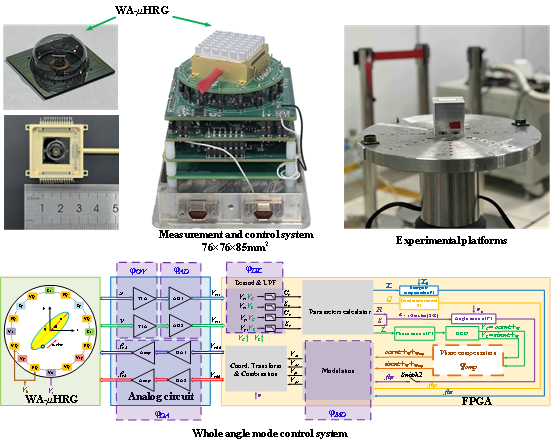A research team from Southeast University, led by Professor Bo Yang, has developed a groundbreaking method to significantly enhance the accuracy of micro-electromechanical systems (MEMS) gyroscopes. The research, to be presented at the prestigious IEEE SENSORS 2025 conference, introduces a high-precision phase error identification and compensation technique for full-symmetric MEMS rate-integrating gyroscopes (RIGs).
Their paper, titled “A High-Precision Phase Error Identification and Compensation Method for Full Symmetric MEMS Rate-Integrating Gyroscope Based on Virtual Control Force Observation,” with Bei Li as first author, introduces a breakthrough approach to mitigating system-level phase errors—a critical factor limiting the accuracy of high-performance MEMS gyroscopes. The novel method leverages Virtual Control Force Observation to precisely identify and eliminate system-level phase errors, which are a major source of inaccuracy in these inertial sensors.

MEMS gyroscopes, particularly those operating in the high-performance Whole-Angle (WA) mode, are vital for navigation and stabilization in applications from micro-drones to advanced robotics. However, their precision has been historically limited by phase delays within the control electronics. The team's research systematically characterizes these phase errors and provides a robust compensation strategy, achieving remarkable results:
Identification of a phase delay error of 0.637°.
Compensation accuracy of below 0.064°.
Reduction of angular velocity drift by 89.9%, from 0.489°/s to 0.049°/s.
Maintenance of exceptional zero-bias instability at 0.015°/h.
"Our work provides a critical solution to a long-standing challenge in MEMS gyroscope design," said Bei Li. "By achieving such a high precision of phase error compensation, we are unlocking the full potential of Whole-Angle operation, paving the way for more accurate and reliable inertial navigation systems in the future."
The research validates the method's efficacy through coupled theoretical modeling and experimental demonstration on a MEMS hemispherical resonator gyroscope (μHRG). After compensation, the system's angle-dependent bias (ADB) drift was drastically reduced. The experiment results affirm the efficacy of the presented phase error characterization method.
About IEEE SENSORS 2025
The IEEE SENSORS conference is a premier annual event that brings together leading researchers and industry professionals to present the latest developments in sensor technology and its applications. The acceptance of this work at IEEE SENSORS 2025 underscores its significance and potential impact on the field of micro-inertial sensing and navigation.
About the Team
The research was conducted at the Key Laboratory of Micro-Inertial Instrument and Advanced Navigation Technology at Southeast University, a leading institution dedicated to advancing navigation and sensing technologies. The team, led by Professor Bo Yang, focuses on pushing the boundaries of performance for next-generation MEMS inertial sensors.


